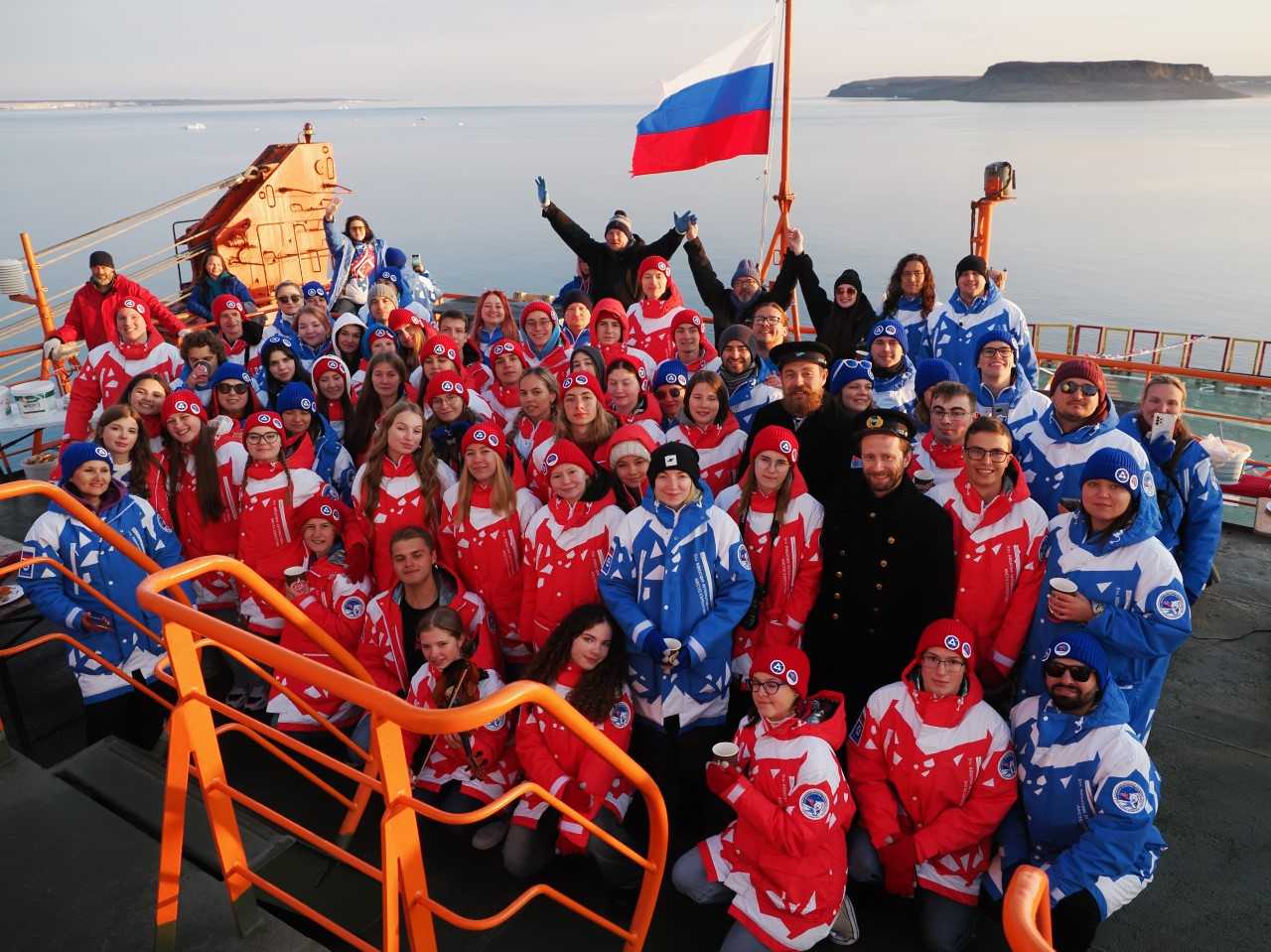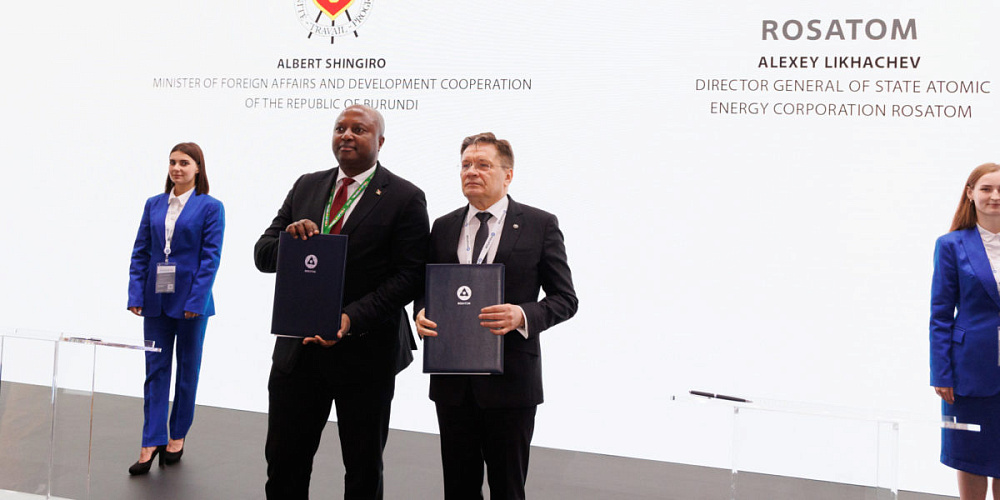May 27, 2025 was the last day of the qualifying round for foreign participants of the 6th Icebreaker of Knowledge international scientific and educational project implemented by the network of Nuclear Industry Information Centers (NIIC) with the support of Rosatom. The project, aimed at promoting natural science disciplines and technologies of the nuclear industry, involves the selection of students aged 14-16 from all over the world to participate in a scientific and educational expedition to the North Pole aboard the 50 Let Pobedy nuclear icebreaker. This year's expedition is dedicated to the 80th anniversary of the Russian nuclear industry and the 500th anniversary of exploring the Northern Sea Route.
Over 3,500 students from 20 countries, including Belarus, Bolivia, Brazil, Hungary, Vietnam and others, took part in the foreign qualifying stage. This year, a record number of entries for the competition came from Kyrgyzstan, India and Bangladesh. The competition was being held online on the goarctic.energy website. Participants of the international selection process were asked to take a scientific quiz and a series of webinars on the topic of nuclear technology, and at the end to test their knowledge and fill in the notes. In the final round of the competition, the applicants who have scored the most points will face another challenge: they will be asked to make a video presentation on how nuclear technology can change life in their countries. The creative assignments will be evaluated by an international jury. The best of the best will be announced on June 20, 2025.
The Icebreaker of Knowledge scientific and educational project is organized by the network of Nuclear Industry Information Centers (NIIC) with the support of Rosatom. It is aimed at promoting natural science disciplines and technologies of the nuclear industry, finding and supporting talented and gifted children, developing their abilities and offering career guidance. The project participants are students aged 14-16 from all over the world; the best of them embark on the Rosatom scientific and educational expedition to the North Pole aboard the 50 Let Pobedy nuclear icebreaker.
For six years in a row the Icebreaker of Knowledge has been giving talented and active children an opportunity to make an unforgettable trip on a nuclear icebreaker to the North Pole in the company of like-minded people. Since the launch of the project, more than 350 gifted students have participated in Rosatom's Arctic expeditions. In 2024, the Icebreaker of Knowledge expedition was joined by international participants for the first time. A team of 15 students and experts from Armenia, Uzbekistan, Kazakhstan, Kyrgyzstan, Belarus, Mongolia, Hungary, India, China, South Africa traveled to the North Pole on the 50 Let Pobedy nuclear icebreaker.
The Northern Sea Route (NSR) is the shortest shipping route between the western part of Eurasia and the Asia-Pacific region and a historically developed national transportation artery of Russia. The first mention of the Northern Sea Route dates back to 1525, when the Russian diplomat Dmitry Gerasimov came up with the idea of using a navigation route along the seas of the Arctic Ocean, opening up the prospects of maritime communication between Russia and China. From this moment began the Russian history of development of the Northern Sea Route, which will be 500 years old in 2025.
In 2018, the Russian Government authorized Rosatom as the infrastructure operator of the Northern Sea Route (NSR). The corporation supervises the federal project Development of the Northern Sea Route, as well as takes part in implementing the Northern Sea Route Development Plan until 2035 and the initiative for socio-economic development of the Russian Federation until 2030 All-Year-Round Northern Sea Route approved by the Russian Government.
Russia is the only country in the world with a nuclear-powered icebreaker fleet. The fleet is operated by FSUE Atomflot, an enterprise of Rosatom. Today there are eight nuclear-powered icebreakers in the icebreaker fleet of FSUE Atomflot.
In 2025, the Russian nuclear industry celebrates its 80th anniversary. The USSR was a pioneer and global leader in the peaceful use of atomic energy: Soviet nuclear engineers built the world's first nuclear power plant (1954, Obninsk) and made the first nuclear-powered icebreaker to help explorers of the Arctic (1959, Lenin). Today, Rosatom continues developing and implementing advanced technologies in a wide range of industries. The State Corporation not only builds nuclear power plants, providing clean energy to hundreds of millions of people in dozens of countries around the world, but also ensures the logistics of the Northern Sea Route, produces new materials, develops and manufactures pharmaceuticals for nuclear medicine. The anniversary year is defined by three words: pride, inspiration, dreaming. Nuclear engineers are proud of the feat performed by the industry's founding fathers. They are inspired by the accomplishments of previous generations. They plan to break new grounds, pushing the boundaries of what is possible. The 80th anniversary of the industry will be celebrated with a number of events, the key one being the World Atomic Week international forum to be held in Moscow this fall.
Rosatom and its enterprises pay special attention to supporting and developing educational, scientific, educational and cultural initiatives. They also participate in the creation of industrial partnership departments in Russian universities, implementation of scholarship support programs, major educational projects, organization of internships and apprenticeships for students with subsequent employment.





